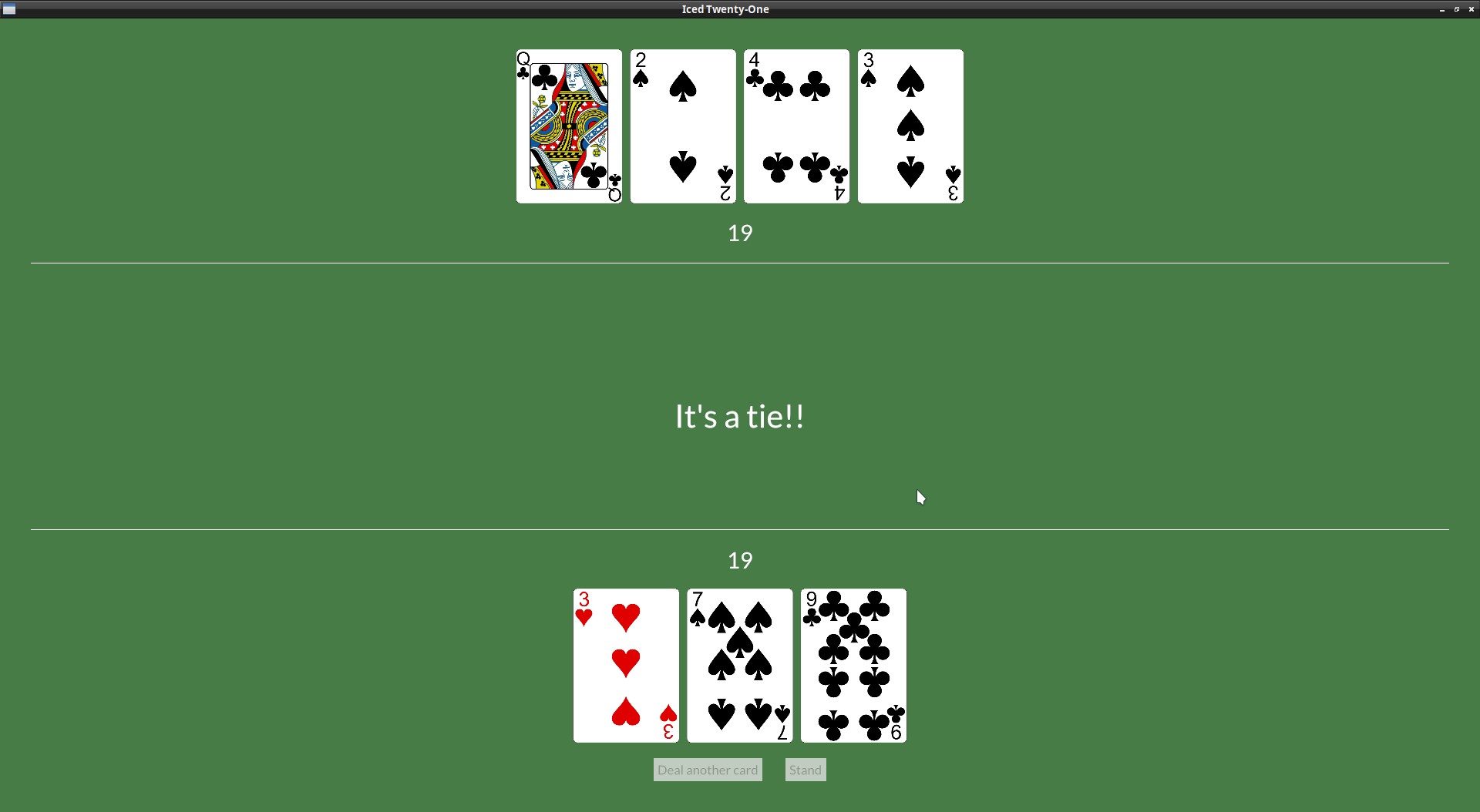Let dealer draw cards: A Subscription
The game isn't very fair right now, the dealer should be able to get more cards too.
And it would be a bit boring to just add all cards they want all at once, it would be better if we added them one by one, this isn't the main use of it, but it's a good time to introduce the iced Subscription.
A Subscription is used when you need to listen (without blocking the GUI) to external events, like window events, listening to an external process stdout, getting data from a device or a network connection, etc...). You run the Subscription and the Subscription thread will keep running and sending Messages to your application when necessary.
Here our use case is super simple, we will have a Subscription that produces a message at a set interval and will deal a new card to the dealer each time until they no longer need more. iced_futures has a every() function that does just that.
For more normal use cases, you would probably want to use the subscription::channel() function that will run your code (which should be an async Stream). It's a complicated thing if you're not familiar with async code, but on iced's discord and discourse you can find a bunch of discussions about this and also get help in case you need.
But let's prepare the game logic first, we need to define the Message the subscription will return to us when it's time to deal another card to the dealer, don't worry about the argument it receives, the every() function returns the time that has passed in case we need, but we don't care about it in this case:
#[derive(Debug, Clone, Copy)]
enum Message {
Start,
DealCard,
Stand,
DealerDraw(Instant),
}
I think using blackjack's rule about the dealer hitting on a hand lower than 17 works nicely here too. We can keep our game_stage field at "Standing" and draw cards until we have a result.
We're also processing the DealerDraw(_) message on our update(), no mysteries there, just draw a card and check if we got a result.
} Message::Stand => {
self.game_stage = GameStage::Standing;
if self.dealer_hand.value() == self.player_hand.value() {
self.game_stage = GameStage::Tie;
} if self.dealer_hand.value() > self.player_hand.value() {
self.game_stage = GameStage::HouseWon;
} else if self.dealer_hand.value() < 17 {
self.game_stage = GameStage::Standing;
} else {
self.game_stage = GameStage::PlayerWon;
}
} Message::DealerDraw(_) => {
self.dealer_hand.push(self.deck.deal_card().unwrap());
if self.dealer_hand.value() > 21 {
self.game_stage = GameStage::PlayerWon;
} else if self.dealer_hand.value() > self.player_hand.value() {
self.game_stage = GameStage::HouseWon;
} else if self.dealer_hand.value() == self.player_hand.value() {
self.game_stage = GameStage::Tie;
}
}
For async stuff Iced has three backends, tokio, async-std, and smol. To use the every() function I mentioned before, we need to choose one of these using the feature of the same name. It doesn't really matter much which one, let's go with tokio here, add it to your Cargo.toml:
iced = {version = "0.10.0", features = ["image", "tokio"] }
Add these new imports to our main.rs:
use iced::Subscription;
use std::time::{Duration, Instant};
use iced::time;
This will be our Subscription function (it's an optional method of the application trait), place it under the view():
fn subscription(&self) -> Subscription<Message> {
match self.game_stage {
GameStage::Standing => {
time::every(Duration::from_millis(1000)).map(Message::DealerDraw)
} _ => Subscription::none(),
}
}
While the game is at the "standing" stage we keep getting cards for the dealer (which are being processed on our update() and when they don't want more cards we return Subscription::none(). Not calling the subscription anymore is how we stop it.
And that was all we needed.
